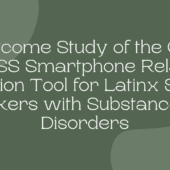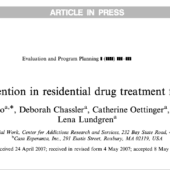Clients Participating in CasaCare Study (n=315)
All clients screened positive for co-occurring mental health and substance use disorders. The large majority of clients are Latinx and 70% defined themselves as Puerto-Ricans. Over half (54.9%) of the clients reported having less than a high school diploma. The majority (87.7%) participants were unemployed at intake. In the 30 days prior to intake, 70.3% of Casa’s clients considered themselves homeless.
Homelessness a key factor associated with client severity of problem and needs.
Compared to other CasaCare clients, the group that considered themselves homeless reported: *
1. More severe mental health problems and trauma:
- More likely to ever try to kill self (44.0% vs 28.6%).
- Scored significantly higher on the PHQ-9 score measuring depression, mean (SD) 10.5 (7.2) vs 7.9% (6.2); 37.0% of those who were homeless screened positive for depression (PHQ-9 score of 15 or higher) vs. 15.7% of the non-homeless clients.
- More likely to experience event(s) that physically/emotionally harmed or threatened (77.9% vs. 62.0%).
- Higher levels of trauma on Trauma Symptoms Checklist, score Mean (SD) 28.1 (19.5) vs. 20.4 (14.3).
2. More severe drug use and addiction:
- Ever used street opioids (74.9% vs 52.7%); ever used prescribed opioids (34.6% vs. 27.5% [p< 05]); ever used cocaine or crack (82.6% vs 62.0%); ever injected drugs (48.5% vs 32.5%); ever used hallucinogens (25.6% vs 10.9%).
- Other drug types had lower prevalence but same pattern existed for: stimulants, methamphetamine, inhalants and tranquilizers.
3. More psychiatric and opioid disorder medication use:
- Ever prescribed medications for psychological/emotional problems (75.6% vs. 60.2%).
- Ever prescribed Suboxone (35.6% vs. 21.5%, p=.01).
4. More negative social determinants of health:
- Ever been in prison (82.8% vs. 66.7%).
- Less likely to be employed (8.6% vs. 19.1%).
- More likely to be residing with someone who had alcohol problems (18.9% vs. 6.1%).
* All comparisons of homeless and non-homeless groups statistically significant at p < .01 except where otherwise noted.




